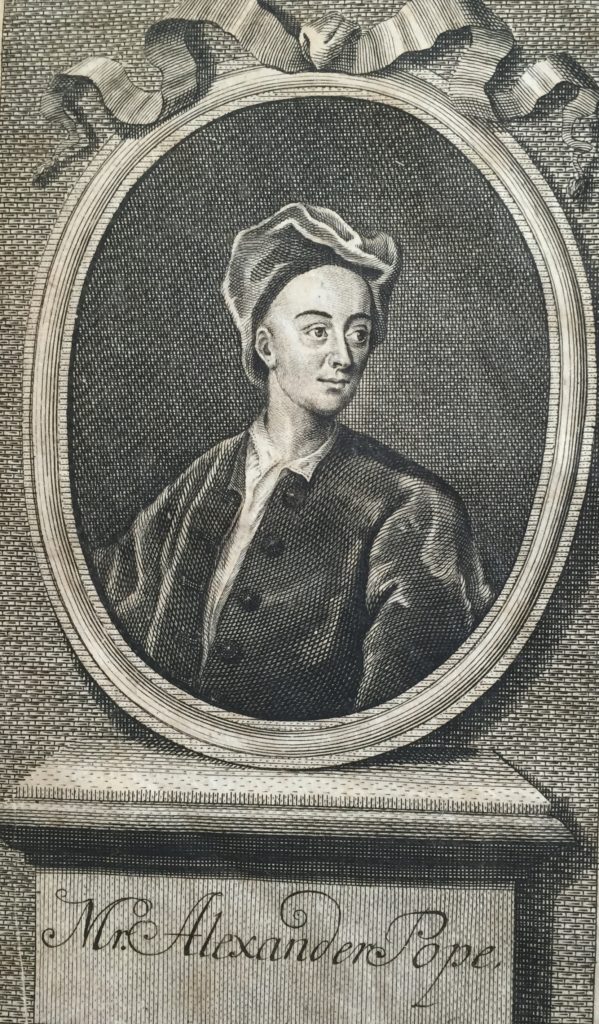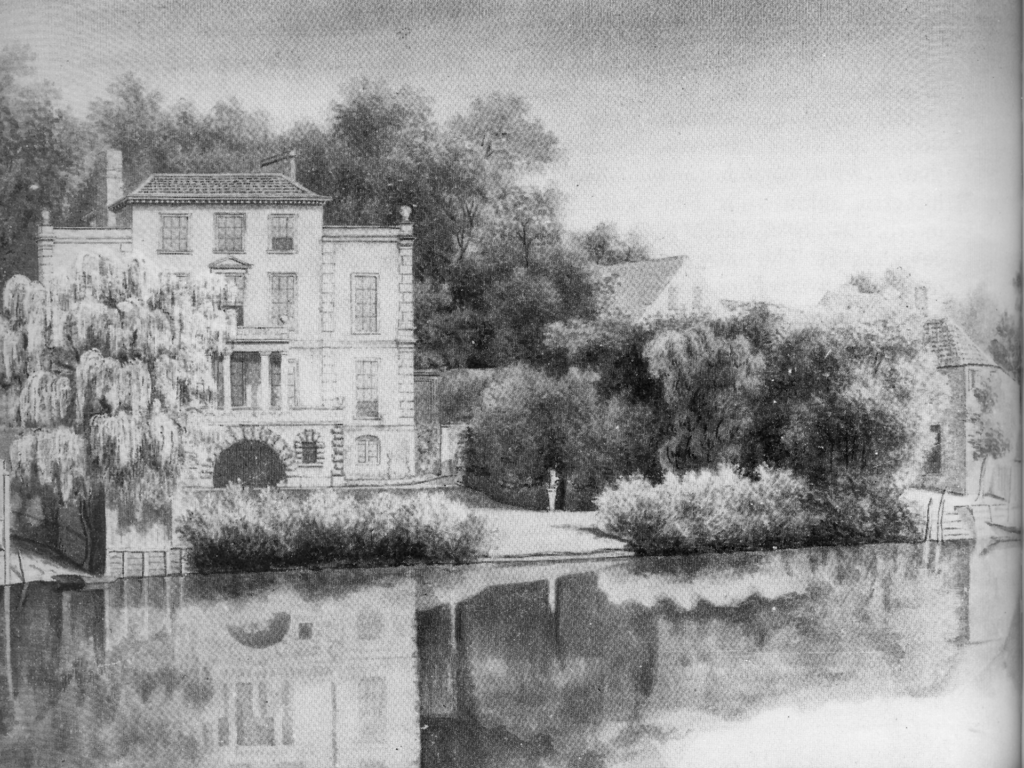Robert Leucht, former Sylvia Naish Fellow, provides some insights into the research project he pursued at the IMLR.
A crisis of orientation
The years around 1750 represented a crisis of orientation for German authors.
Around this time, at least three different types of author co-existed: first, the court bard (Hofpoet), who produced literary texts on occasion, for noble patrons; second, the scholarly poet (Gelehrtendichter), who was active as a writer, but also as a teacher; and third, the independent writer (freier Schriftsteller), as experimented with by Friedrich Gottlieb Klopstock, Christoph Martin Wieland and others. This last, however, had at that time not yet fully emerged.
German authors of the time had a choice between a rock and a hard place: between artistic bondage on the one hand and economic uncertainty on the other.

Seeking orientation in England
At this critical moment, some of them sought orientation abroad, particularly in England and France, where a literary public was already further developed, and, more importantly, authors such as Voltaire and Alexander Pope seemed to enjoy much greater freedom, artistically and economically. Of all European writers it was Pope who played the most prominent role for German authors of the time. Indeed, for some of them, including Klopstock, Lessing and Wieland, he represented the ideal of an independent writer and served as a role model.
Creating the demonstrative biography of an independent writer
“Ich komme auf Herrn Popen selbst. Dieser hält sich gemeinglich zu Twittenham, die angenehmste Graffschaft in der Gegend Middelsex, 12 Meilen von London, auf. Der Mylord, Peterborough, hat ihm allda ein prächtiges, nahe an der Temse gelegenes Haus aus bloßer Hochachtung vor seine besonderen Verdienste, verehret. Er hat dabei einen Garten mit mäßigen Kosten angeleget, den alle Kenner bewundern, und weit kostbareren Gärten vorziehn, welche mehr den Reichthum, als den guten Geschmack ihrer Besitzer oder Eigener bezeugen. Die Grossen am Englischen Hofe haben keine Mittel gefunden, ein Herz oder eine Feder, wie die seinigen, zu gewinnen. Die Freyheit zu gedenken, hat er allem Eigennutze der Ehrbegierde oder der Habsucht vorgezogen, weil er alles in seinem Eigenthum, in sich selbst, in seinen Büchern, und in der Freundschaft und dem Umgang weniger Bekannten findet, was ihm schätzbar scheinet. Mit Höhern, schreibt Herr William Delland lebt er ohne Schmeicheley und Niederträchtigkeit, und er dienet ihnen ohne Eigennutz und Vortheil.” 1
This passage stems from an introduction to an early translation of Pope’s Essay on Man (1740), which represents probably the first biographical sketch of the English poet in the German-speaking world. Representative of many of the biographical sketches to come, in this source Pope is depicted in his relation to money, on the one hand, and to power, on the other – as a poet both economically independent and untrammelled by court protocol.
Such depictions are not of biographical use since their claim to provide us with a realistic image of Pope’s life is belied by the fact that Pope actually suffered from his dependency, not on the aristocracy, but rather on the newly emerging literary market. They are nonetheless relevant as manifestos, in which poets striving to emancipate themselves from the aristocracy created an idealized, not yet existent image of a writer. They constitute the demonstrative biography of a freier Schriftsteller, which provided authors on the verge of the status of freier Schriftsteller with a sense of where they needed to go.

The poet’s garden
In the creation of Pope’s legend as the ideal of an independent writer, his property in the southwest of London, his Twickenham garden, is among the recurring elements.
Remarkably, the description of Twickenham is juxtaposed with that of Pope’s works: characteristics such as originality, or taste, attributed to Pope’s work, are attributed also to the poet’s garden. In other words, the description of Pope’s garden mirrors the image created of Pope, the author, as showing ‘good taste’ and avoiding any ‘exuberance’.
This very juxtaposition provided an overreaching illusion of Pope’s life.
The effective powers of this life illusion may be inferred from the fact that, after the poet had died in 1744, German authors would go on pilgrimages to Twickenham, where some visitors would take pieces of Pope’s estate with them as souvenirs. Sophie La Roche, for example, in a letter to Wieland, confesses that she has picked a leaf from Pope’s garden.
More than a case study
The vicissitudes of Pope’s biographical legend in Germany can be seen as an episode in the long history of entanglements between German and English literature.
But the story also raises questions of a more general importance; questions, I believe, more relevant today than ever:
How do collectives create phantasms of individual greatness?
In what historical contexts can these phantasms evolve?
How do these phantasms provide orientation among disorientation?
The biographical legend created around Pope in the mid-18th century in Germany, which I have been researching at the IMLR, must be seen as a more general mechanism of role-model construction: the creation of great men, or heroes, if you wish.
1. Barthold Joachim Zinck: „Vorbericht“. In: Barthold Joachim Zinck (Hg.): B. H. Brockes. Aus dem Englischen übersetzter Versuch vom Menschen des Herrn Alexander Pope nebst verschiedenen anderen Übersetzungen und einigen Gedichten. Hamburg 1740, S. 4–27, Zitat S. 19–21.
Robert Leucht, Sylvia Naish Fellow (Jan-Feb 2019)
